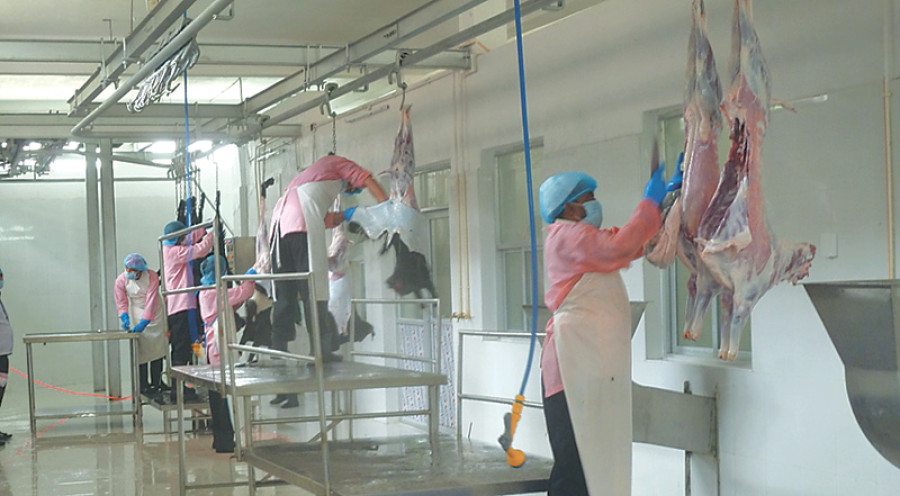Money
Alpine meat factory closed in just 5 mths
Alpine Livestock and Bio Trade, the company tasked to supply meat to Kathmandu, has been shut down.
Harihar Singh Rathaur
Alpine Livestock and Bio Trade, the company tasked to supply meat to Kathmandu, has been shut down.
The five-month old company opened with an investment worth Rs110 million but saw little demand for its meat products as consumers preferred meat procured from open slaughter houses. This ultimately caused the company to fold, said company’s proprietors. The company was opened in Thakre, Dhading with the aim of providing fat and skin free quality meat to people.
“The government failed to discourage open slaughter houses that have been providing unhygienic meat,” said Madhav Aryal, proprietor of the company.
The government has introduced various laws and guidelines to ensure proper practices to produce and sell meat of high quality. However, it has not been implemented effectively.
The company was opened to supply meat to the Capital based on the statistics that the valley consumes 1,600-1,800 goats daily. Alpine, Nepal’s first modern slaughterhouse was spread over 17 ropanis of land. The factory used to require 300 goats per eight hours for meat processing.
“However, due to the lack of goats, we often used to run the factory for two days a week,” said Aryal. “We had problems paying the working. So we had to shut down the factory.”
The factory used to employ 50 people. Different banks had invested Rs55 million in the slaughter house. The cost of local meat in the market when the factory was established was Rs500. However, meat produced by the factory was sold at Rs1,100 per kg.
Aryal said that since fat and skin free meat was not consumed in the valley, the demand for meat produced by the factory had slowed down. It ultimately affected the factory and was forced to shut down. Bad luck continues to befall the doomed factory as even its electricity transformer has been stolen and weed has overtaken the inside of the factory, making it look like a jungle.
The proprietor is now seeking investors to sell the company. “Though many businessmen have inspected the property, nobody has shown interest in buying it,” said Bimal Tamang, a local residing near the factory.




 21.02°C Kathmandu
21.02°C Kathmandu














